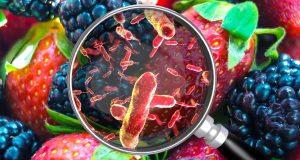Understanding Food Poisonings:
Food poisoning, also known as foodborne illness, occurs when contaminated food or water is consumed, leading to the development of symptoms such as nausea, vomiting, diarrhea, abdominal pain, and, in severe cases, fever and dehydration. The contamination can result from harmful bacteria, viruses, parasites, or toxins present in the food or water. Common culprits include undercooked or raw meat, unpasteurized dairy products, contaminated fruits and vegetables, and improperly handled or stored food. The severity and duration of symptoms vary depending on the type of contaminant and the individual’s health. Proper food handling, cooking, and hygiene practices are essential in preventing food poisoning. If symptoms persist or are severe, seeking medical attention is advisable.
Symptoms:
The symptoms of food poisoning can vary depending on the type of contaminant and the individual’s health, but common signs may include:
Nausea and Vomiting:
Sudden onset of nausea followed by vomiting.
Diarrhea:
Frequent and sometimes explosive bowel movements.
Abdominal Pain and Cramps:
Intense discomfort or cramping in the abdominal area.
Fever:
Elevated body temperature, indicating an inflammatory response.
Muscle Aches:
Generalized or localized muscle discomfort.
Headache:
Pain or pressure in the head.
Fatigue:
Feeling unusually tired or lethargic.
Dehydration:
Symptoms may include dry mouth, decreased urine output, and increased thirst.

Foods to Avoid:
To minimize the risk of food poisoning, it’s essential to be mindful of food handling, storage, and consumption. Here are some tips on foods to handle with care or avoid to reduce the risk of foodborne illnesses:
Undercooked Meat and Poultry:
Ensure that meats, such as chicken, beef, and pork, are cooked thoroughly to their safe internal temperatures to kill harmful bacteria.

Raw or Undercooked Eggs:
Avoid consuming raw or undercooked eggs and dishes containing raw eggs, as they can carry Salmonella.
Raw Seafood:
Be cautious with raw seafood, such as sushi or oysters, as they may harbor bacteria, viruses, or parasites that can cause foodborne illnesses.
Unpasteurized Dairy Products:
Steer clear of unpasteurized milk, cheese, or other dairy products as they may contain harmful bacteria like Listeria or E. coli.
Cross-Contaminated Foods:
Prevent cross-contamination by separating raw meats from other foods and using separate cutting boards and utensils for different food types.
Unwashed Fruits and Vegetables:
Thoroughly wash fruits and vegetables before consuming them to remove potential contaminants.

Improperly Stored Leftovers:
Store leftovers properly in the refrigerator or freezer and consume them within a safe timeframe to prevent bacterial growth.
Canned Foods:
Avoid consuming from damaged, bulging, or leaking cans, as these can indicate potential contamination or spoilage.
Processed Deli Meats and Hot Dogs:
Handle and store processed deli meats and hot dogs safely to prevent the risk of Listeria contamination.
Food from Unsanitary Conditions:
Avoid food prepared or served in unsanitary conditions or establishments with poor hygiene practices.
Conclusion:
In conclusion, safeguarding against food poisoning involves a combination of cautious food handling, thorough cooking, and mindful consumption. Avoiding undercooked meats, raw eggs, and unpasteurized dairy, as well as practicing diligent hygiene in food preparation, reduces the risk of harmful bacteria or contaminants. Attention to safe storage, proper handling to prevent cross-contamination, and awareness of food sources contribute to a healthier, lower-risk dining experience. Regularly practicing these measures is key to minimizing the likelihood of foodborne illnesses and ensuring the safety of the food we consume.










